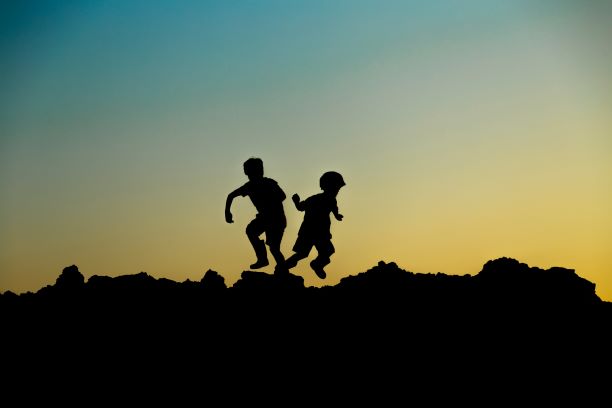
What were you doing at age 4? 11? 15? I was going to school, playing sports, and spending time with friends and family. I certainly was not detained in a foreign country, indefinitely waiting in a “shelter” from which I could not escape. I did not face death threats at home and travel along one of the most dangerous immigration routes in the world only to be apprehended when I reached what I thought was the promise land.
Unfortunately, this is the reality for thousands of immigrant children detained by the Office of Refugee Resettlement (ORR).
I have worked for CAIR Coalition’s Detained Children’s Program for 8 months now and visited a children’s detention facility nearly every week I’ve been with CAIR Coalition. As a legal service provider, CAIR Coalition has a unique perspective on the reality that many of the children in ORR custody face: untreated PTSD, separation from family members, and human desperation in its purest form.
One of the most frequent questions people ask me is: “how do these kids end up here?” Simply put, any child that crosses the border and is apprehended by Customs and Border Protection (CBP) will first be transferred to a massive holding facility near the border which kids refer to as “hieleras” or ice boxes. Here, kids sleep on cement floors with aluminum sheets and receive food that I’m often told is inedible. After ICE has determined that the minor is under 18 and traveling alone, they look for bed space at one of ORR’s detention facilities around the country. Sometimes kids are transferred to regions with no rhyme or reason; other times, kids are transferred to a detention facility close to where their family members live. Either way, after anywhere between 1-5 days in the ice box, kids are boarded onto a plane and shipped to a “shelter” where they will be detained often indefinitely.
Unlike adults, immigrant children have a right to reunify with family or friends while they wait (sometimes years) to fight their immigration case. But, before reunification occurs, each child’s sponsor must submit paperwork that basically documents their entire life and also conduct fingerprints for an FBI background check. Often, these processes can take anywhere from 2 months to 12 months, depending on the results of the background check and the strength of the relationship between the sponsor and child. This waiting time was only exacerbated following CBP, ICE, and ORR’s Memorandum of Agreement in May 2018 that gave ICE access to the information of any child’s sponsor. Since many sponsors are themselves undocumented, this agreement has led to the indefinite detention of children who did not want to risk the detention or deportation of their family members. So, as kids wait for their sponsor’s fingerprints to come through, or they wait to find a long-term foster care program that can take them in, they languish at these so-called “shelters,” from which there is no escape. Anyone who tries to leave is stepped up to a medium or maximum-security center that mirror juvenile prisons.
Another question I am frequently asked is: “Who would send their child on such a dangerous journey to the unknown?” Every time, I am struck by the profound lack of empathy the inquirer has for their fellow human counterparts. In response, I always try to have the person asking the question to put themselves in the shoes of the many children we see: what if you could never leave your house because doing so means you would be threatened and killed by a gang? What if a gang left multiple notes on your door saying they know where you live and that the time has come for you to die? What if because of your sexual orientation, religion, or political opinion, the rest of your town wanted you dead? What if you became your family’s breadwinner ate age 9, working grueling hours in the field only to make less than a dollar and to come home hungry yet again? The list goes on and on, but this is the reality that many kids who immigrate to the U.S. face. If this were you, or your sister, or your child, what would you do in this situation? I’m pretty sure that you too would try to do all you could to make a better life for yourself and your family. I’m also pretty sure you would never ask me this question in the first place.
All this goes to say that the kids we work with are no different than me or you. It goes to say that nationality is a lottery that can determine whether you grow up, go to school, and spend time with your friends and family like any “normal” kid, or whether you are born into a place where your life is determined by endless violence. Do we not owe it to our fellow humans to offer a place of refuge, free of judgement, xenophobia, and disdain? Aren’t these the very principles that prompted Europeans to come to America in the first place? Immigrants don’t only make America great; immigrants always have been and always will be what makes America American.
